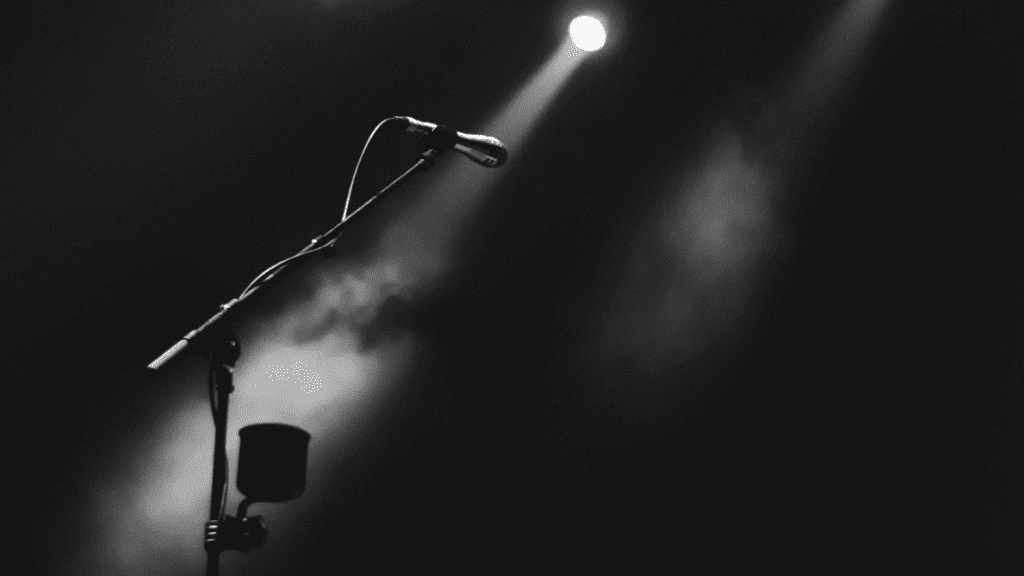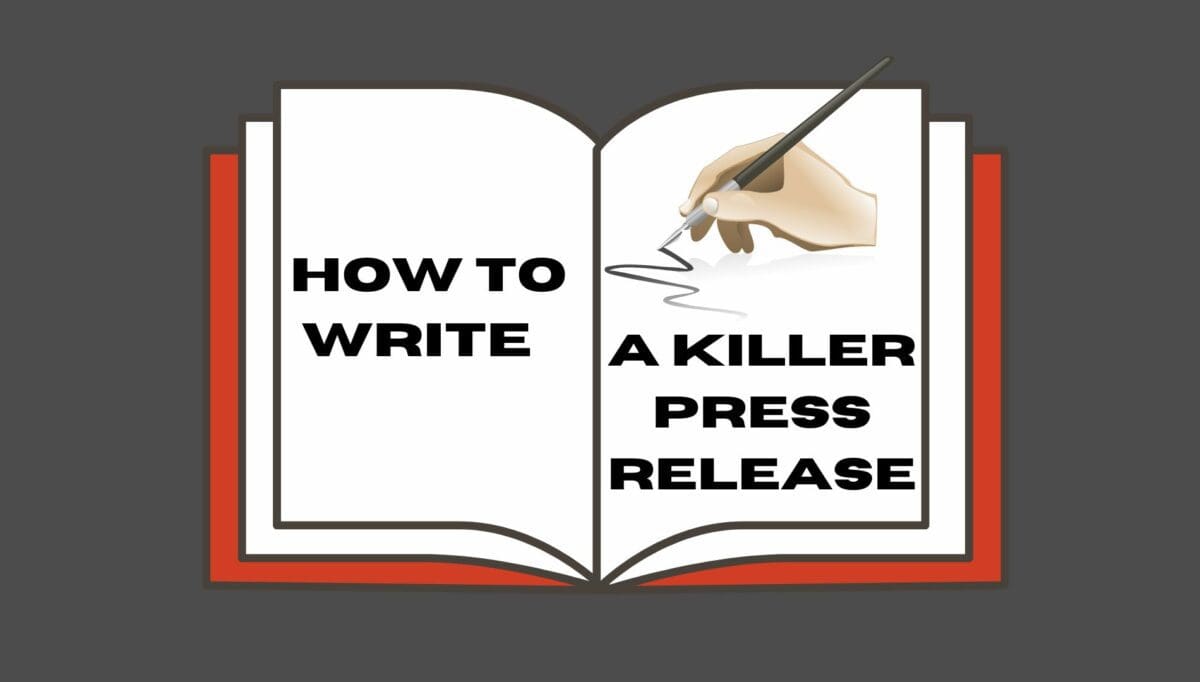
For potential event organisers, hosting an open mic night can be a fun way to generate a source of income. So, what do you have to consider before becoming a host of an open mic night? Here we discuss some of the methods you should employ when hosting an open mic night with tips on how to start it, run it, how to promote the event, how to organise it, and how it could make you money.
If you’re approaching a venue with the idea of starting a new open mic, then you need to get the venue to see the benefits on offer: open mic nights help to build awareness, support customer retention, improve attendance on quieter nights and can even generate media attention.
If you’re new to open mic nights and before you host one, click this article for more on how open mic nights work.
Are you releasing new music?
Book a meeting with a Music Gateway A&R today.
Discuss release strategies, distribution, growing your fanbase, organic playlisting, press, radio and more.
How to run an open mic night
There’s a lot to consider before starting and hosting an open mic night.
#1 Go to open mic nights

The first decision as a host is deciding if your night is going to follow any particular genre of music. Would you prefer a specific style or are you open to any music artist turning up to perform at your event?
Do the research; what venues in your planned location host their own open mic nights? On what days? What genres and how regularly are they run?
Check your local area to see what your competition is and how successful or not the nights are. An easy way to do this is to type ‘open mic night’ into Google Maps. See if there is a gap in the market.
#2 Find a venue
Once you’ve worked that out you can start to look for a suitable venue. Are you looking at a venue that lends itself to rap battles, country, urban or rock nights?
Visit all potential venues to see what the available space for musicians is, think about where the audience will be, where acts will potentially perform and consider any obstacles.
Talk to the managers; are they enthusiastic about the new proposition and prepared to advertise it? Will they give it enough time to grow?
Ideally, you’d like the establishment to provide you with a fee and/or cut on the bar sales, so establish the financial arrangement clearly from the start plus the support that will be given.
Open mic rules

#3 Make clear rules
As the host of the open mic, you’re going to need to make some rules. Try to be consistent from day one but don’t be afraid to make a change if something isn’t working, just make sure it’s clearly communicated to participants or audience members well in advance.
- Follow the rules. There’s no point in setting rules if you can’t follow them. Set the example for everyone else.
- Look after the equipment. Performance equipment is expensive and can be easily damaged in a room full of people drinking. Make sure you have your eye on it all and that the performers respect what they’re using.
- Give performers a heads-up. Performers are often there to have a good time with their mates and probably won’t be ready right away. Give them 10 to 15 minutes to get ready to keep things smooth.
- Keep to the schedule. Make sure performers are on track with their allocated time and be ready to jump in to wrap them up if they overrun.
- Don’t be negative. This especially includes complaining or talking about any of your artists in a bad way. If you’re overheard moaning, you’ll quickly develop a bad reputation.
- Watch the other acts. As the host, you need performers to keep coming to your open mic. Being respectful and attentive will make it more likely for people to return so pay attention to everyone.
- Be aware of those who cut and run. These are the ones who come only for their performance and then leave. It’s poor etiquette and frowned upon by the open-mic community.
- Crowd control. Everyone has a phone in their hand these days but if interference from ring tones, phone calls or general chat is disturbing the artists you’ll need to find a friendly way of asking them to pipe down.
How to host an open mic the first night and which day of the week you should choose?

#4 Pick a day to run your open mic
You should consider hosting your first open mic night on certain days. Open mics are usually held midweek or on a Sunday when the bar or venue is more likely to be quiet. These are days a venue is more likely to be happy to offer the space to bring customers in as opposed to weekends where they are most likely to have busy successful nights already.
Consideration should be made if the night is not at the weekend both performers and audience members will have to work the following day so consider an early starting time.
#5 Decide how often you want to run your nights
Consider doing it once a month or every other week until the open mic establishes itself. Many nights start weekly and then struggle to get enough performers, so our tip is to start off monthly or bi-weekly and then expand when there is a demand.
This is a much better idea than being too ambitious from the outset.
Work with the venue to think of promotional ideas, which could benefit you both. For example, a buy one, get one freestyle drinks or food promotion from 6-7 pm may encourage your artists to arrive early with friends.
Best location to host an open mic night
#6 Make sure there are facilities
Remember that you’re catering to musicians who may have to bring instruments or equipment. They may travel via public transportation, so it is beneficial when deciding where to host your open mic event to consider a location close to good public transport links and good parking. The cost of parking is another consideration that may put off potential performers.
Pubs are a popular venue choice, as they will often offer the right facilities like a PA system, but if this isn’t an option, there are plenty of other event spaces you could explore, such as your local youth club, coffee house, church or theatre.
What equipment is needed to run an open mic night?
If the venue does not already have an adequate PA, you’re going to need a PA system whether this is your own or rented. If rented make sure it’s agreed beforehand who is covering the cost of the PA, the venue or you.
Speakers and stands
Smaller rooms will most likely only need one speaker but once your open mic is pulling in larger crowds or in a larger room you’ll most likely need two speakers.
Choose an active (powered) speaker with its own amp, eliminating the need for an additional external amplifier. Stands are an optional extra for getting optimum sound from where the speakers are positioned.
Mixer and cables
Unless you are not having a jam night, a two-channel mixer should be sufficient to get you started. It allows two guitars to be plugged in for ease of changeover and even the most basic of mixers nowadays come with a separate microphone port. Mixers get a fair bit of wear and tear so check all the sliders, knobs and buttons when you’re setting up at the start of the night.
Check the inputs to see what type of cables are needed to connect instruments, most will require a combination of XLR and guitar jack cables. Always have some spares just in case.
Microphone & mic stand
A good quality microphone is essential for vocal amplification, cheaper options tend not to be up to the job. A condenser mic will increase the volume of acoustic guitars. If you’re providing a mic stand, get the right one for the mic to avoid potential disasters mid-performance.
Chair or stool
If you really want to be thorough, solo guitar players sometimes like to sit down, so make sure you are providing a suitable stool or chair for your musicians to sit down on.
What’s the difference between a jam night and an open mic night?
#7 Choose a jam or open mic
A Jam night is not an open mic night! Jam sessions typically have a full house band with a wide range of instruments including electric guitars and drums. Guests sign up to play or sing along with the band.
Open mic themes
#8 Pick a theme
Theme nights can keep your open mic night fresh and interesting, they’re also a lot of fun. Maybe throw one into the mix and challenge your regulars to try something different.
In addition, you’ll attract musicians who specialise in that genre and want to show you what they can do. In turn, they’ll bring friends along creating new networking opportunities for everyone.
#9 Keep a sign-up sheet
Have some sort of sign-up sheet or board organised and available plenty of time before the start of the night. Online sheets are an option that can guarantee a good turnout if slots are booked in advance but if you’re going to offer this option keep slots free for walk-ins on the night.
Be aware to potentially avoid letting the same people book the same slots each time you’ll alienate new musicians eager to play at your event and you’ll be offering nothing new to the audience.
Running an open mic night & how to make money from an open mic night

As host of an open mic night, it’s up to you to create a good atmosphere, keep the night flowing and manage the time slots. Set up early, check the equipment and start the night on time.
Make sure each act knows its performance time and be prepared to adjust it if you have gaps to fill or are running out of time. You’ll have to juggle keeping both the artists and audience interested enough to stay the duration.
Think about short set times with performers on rotation, they’ll have to stay if they want to perform more than one or two songs.
Introduce the acts, show interest in them and make them feel welcome. Be a people person, remember names – write them down if you must, thank the performers on stage and then again personally.
Take photos, link up with the artists on social media, and help to promote them by sharing and tagging them. Say something positive about their performance, so they feel valued and want to come back.
If you have to fill gaps at quieter times, have a wide range of materials ready to perform or take pre-recorded background music to play.
#10 Set the tone as the host
You’re the host of the night, so remember that the atmosphere of the night will trickle down from your approach and behaviour.
Be accommodating and conscious about spreading a positive attitude. Welcome the audience to the event and perhaps give them a bit of background on why you decided to host an open mic night.
Make the performers feel at ease by giving them a proper introduction and encouraging the audience to applaud. Small gestures like this will result in an overall positive vibe and experience, which is what your guests will likely remember the most.
#11 Make the stage your priority
The best open mic venues feel intimate and put the performance over everything else.
A stage or platform is a great way to place the primary focus on the performers. If this isn’t available, clearly allocate a dedicated ‘performing area’ that is sectioned off from the audience.
#12 Keep it open
It’s called open mic for a reason. While it’s acceptable to pre-book a small handful of musicians the night before, the night should allow for enough flexibility so that musicians can simply rock up at the venue and get a slot to perform.
#13 Keep a strict event structure
The ideal length for a single open mic performance is 10 minutes, max of 15. Two or three songs will give the artists a chance to showcase a range of their music.
Unless your open mic night is genre specific try to arrange the lineup so that there is a variation of styles between them, thus avoiding repetition and making it (potentially) more appealing to the audience.
How to promote an open mic night effectively
To effectively promote an open mic, there are some very simple promotional things you can do.
This can include creating a Facebook page for the open mic night at least six weeks before the event and encouraging people to invite their friends. Post to the page regularly with images of the venue, to give guests a teaser of what they can expect.
Use social media groups to alert guests of any changes or reminders, and make sure that you post throughout the evening, to encourage those who didn’t attend to join next time.
Promotion is endless but you need to ensure you do enough otherwise how will anyone know about it. Click here for more ideas of promoting an open mic night or any event;
Open mic vs Karaoke
I’m sure we’ve all had a go on the Karaoke machine at some point in our lives! Popular songs are performed to a backing track with the lyrics displayed on a screen. It tends to be a social, sing-a-long event in a pub or club unless held at a competition level.
Open mic nights are usually raw and original, with the songs usually being written by the person performing. Backing tracks are rarely used and don’t have the lyrics on a screen.
See the video below for more tips for musicians looking to attend an open mic night:
Have you hosted an open mic night? What steps did you take to launch your event? Can you tell us anything else about how to run an open mic night? We would love to hear from you in the comments below.









